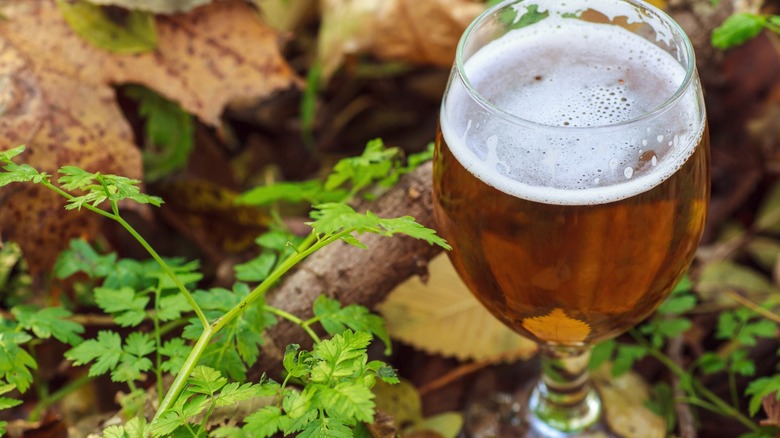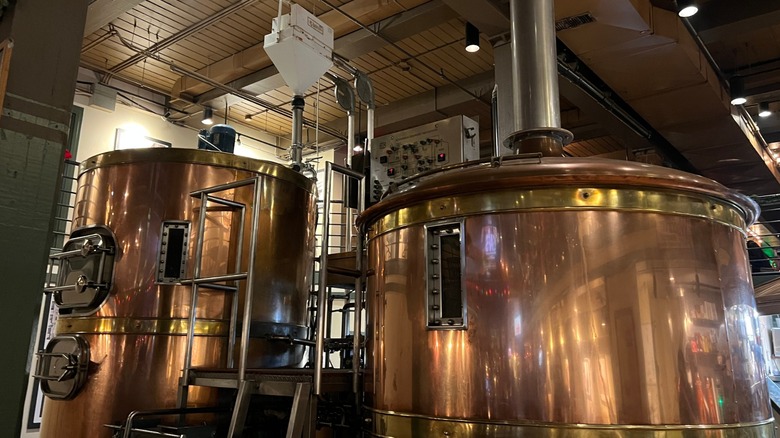What Is The Role Of Beechwood In Making Beer?
The process of making beer is filled with nuance and little intricacies. From the core process of understanding the role of malting barley to even the choice of selling beer in aluminum cans as opposed to bottles, it seems that there's no stone left unturned when it comes to the practice of brewing. This same idea also applies to the thin strips of beechwood that are sometimes placed in beer over the course of its brewing.
"Beechwood aging" is the name given to the procedure of adding beechwood chips to a fermenting beer (although these are usually long and thin wood spirals as opposed to outright chips). While you might initially think this is to impart a woody flavor into the beer, much like how an oak barrel can influence the flavor of whiskey, the real purpose has nothing to do with flavor at all. These chips are actually used to "clean up" the beer by allowing the yeast to cling to the chips, thus reducing some of the off-putting tastes that can emerge without adequate exposure to yeast. So while the beechwood doesn't contribute with its own flavor, it definitely plays a part in shaping the flavor of the beer itself.
When would you use beechwood aging?
Budweiser, whose parent company Anheuser-Busch InBev has its hands in more beer companies than you might think, is a prime example of a brand that utilizes beechwood aging.One crucial detail here is that beechwood aging is something done to lagers, as opposed to ales, for example, with Budweiser itself being a well-known lager. Since lagers are bottom-fermenting beers, the yeast rests at the bottom of the brewing keg. The beechwood chips, which yeast can cling onto, circulate the yeast more effectively throughout the tank. This exposes more liquid to the yeast than if it were simply sitting in the bottom of the fermenting mixture. The result is a much clearer beer than you might have otherwise, which is one reason why the Budweiser company still touts this method.
It should be noted, though, that this process isn't entirely necessary, even for lagers. The beechwood chips are thoroughly sterilized to remove any potential for adding flavor, so their only purpose is to essentially refine the beer by clarifying it and by helping the yeast do its job –- great features, yes, but you wouldn't ruin your beer if you were to forgo this step. However, if that picturesque image of a crystal clear, smooth lager is your goal, then beechwood aging can help you get there.

